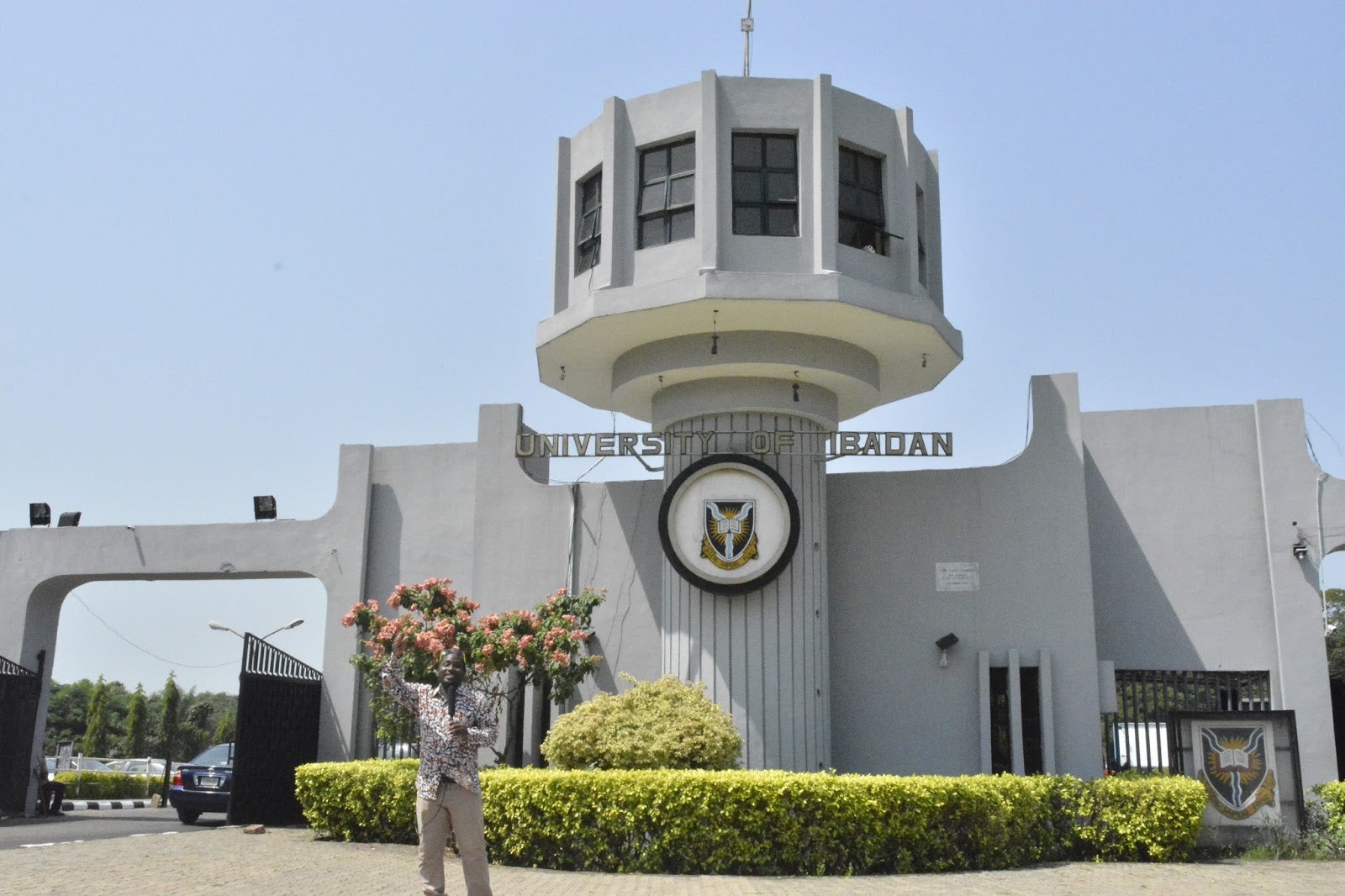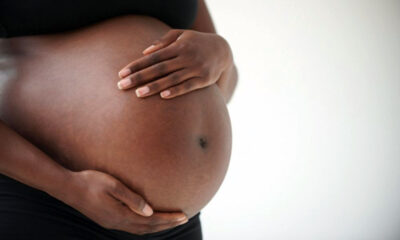Health
Pregnant people exposed to cancer-linked chemicals in household items, dyes – study

Pregnant people are being exposed through various household products to toxic compounds that can increase the risk of cancer and harm child development, a new study has found.
Scientists identified two such compounds — the industrial chemical melamine and its byproduct cyanuric acid — in the urine of almost all the pregnant subjects they tested, with the highest levels occurring in women of color and in those with greater exposure to tobacco.
Four types of chemicals used in dyes, called aromatic amines, were also present in the urine of nearly all pregnant participants, according to the study, published in Chemosphere on Tuesday.
“These chemicals are of serious concern due to their links to cancer and developmental toxicity, yet they are not routinely monitored in the United States,” co-senior author Tracey Woodruff, a professor of obstetrics, gynecology and reproductive medicine at the University of California, San Francisco, said in a statement.
Woodruff and her colleagues decided to investigate the presence of melamine, its derivative cyanuric acid and aromatic amines because they are all nitrogen-containing compounds with known toxicity and widespread commercial use.
READ ALSO:
- ASUU: We won’t allow ruling class to destroy public universities
- ASUU indefinite strike unreasonable; we’ve met their demands 80% – FG
- Breaking: Gunmen Attack Fayose’s Brother in Oyo, Abduct Many
People can be exposed to melamine and aromatic amines in a variety of way of ways: by breathing polluted air, consuming contaminated food or water, ingesting household dust and using products that contain plastic, dyes and pigments, the scientists explained.
The production of cyanuric acid and melamine exceeds 100 million pounds per year in the U.S. alone, according to the authors. Melamine is found in dishwater, plastics, flooring, kitchen counters and pesticides, while cyanuric acid is used as a disinfectant, plastic stabilizer and cleaning solvent in swimming pools, the scientists noted.
When exposure to melamine and cyanuric acid chemicals happens simultaneously, they can be more toxic than either one alone, the authors cautioned.
Aromatic amines, meanwhile, are present in hair dyes, mascara, tattoo ink, paint, tobacco smoke and diesel exhaust.
Despite the prevalence of these chemicals in household products, the authors stressed that biomonitoring of the chemicals is lacking, particularly during pregnancy.
Melamine was recognized as a kidney toxin after baby formula and pet food poisoning events in 2004, 2007 and 2008 left several individuals dead and caused kidney stones and urinary tract obstructions in others, according to the authors.
Additional research from animal experiments, they added, has suggested that melamine impedes brain function.
To draw their conclusions in the Chemosphere study, the researchers measured 45 chemicals linked to cancer and other health risks in urine samples from a small but diverse group of 171 pregnant people.
The subjects had participated in the National Institutes of Health’s Environmental Influences on Child Health Outcomes Program between 2008 and 2020.
The 171 participants came from California, Georgia, Illinois, New Hampshire, New York and Puerto Rico, according to the study.
About 34 percent of them were white, 40 percent were Latina, 20 percent were Black, 4 percent were Asian and the remaining 3 percent were from other or multiple ethnicities.
Levels of one of the aromatic amines, 3,4-dichloroaniline, were more than 100-percent higher among Black and Hispanic women in comparison to white women, the study found.
“It’s disconcerting that we continue to find higher levels of many of these harmful chemicals in people of color,” study co-senior author Jessie Buckley, an associate professor at Johns Hopkins Bloomberg School of Public Health, said in a statement.
Giehae Choi, a postdoctoral fellow at the Bloomberg School of Public Health and first author of the study, stressed that their observations “raise concerns for the health of pregnant women and fetuses.”
“Some of these chemicals are known carcinogens and potential developmental toxicants,” Choi added. “Regulatory action is clearly needed to limit exposure.”
Health
Ekiti College of Nursing, parents at war over increase in hostel fee

Ekiti College of Nursing, parents at war over increase in hostel fee
The parents’ body of students of Ekiti State College of Nursing Sciences, Ado Ekiti has appealed to Governor Biodun Oyebanji, the state House of Assembly, and the commissioners for education and health to intervene in its stalled negotiation with the management of the college over the astronomical fees charged by a private estate developer, BVERS Hostel and Suites.
In the petition obtained by Sunday Vanguard, the parents stated: “We, as the parents’ body of the above College, use this medium to register our ordeal with the management of the college and a private developer over exorbitant charge of N250,000 per bed space.
“Sir, permit us to inform you that a bed space was charged at N40,000 in the year 2022 when our children were offered admission into the college, but this amount was increased to N100,000 per bed space when the students resumed. It took several negotiations before we were given a few months’ grace to pay for the additional N60,000 to make up for the increment.
“We were surprised to receive an urgent call in September this year from our children that they have been moved to a new hostel within the college and with instructions by the college management that a bed space will now cost N280, 000.
“However, the amount was merely reduced to N250, 000 per bed space after several engagements with the College Management to register our objections to the obnoxious increment. Further several appeals for reduction of the accommodation fee by the college management are unyielding and have eventually forced us to appeal to you as the father of the State to come to our aid and mediate on this issue and review as follows:
READ ALSO:
- Ilesa varsity student electrocuted while pressing phone
- Court Ruling: How Obasa played Lagos Assembly members
- Eight arrested in Maiduguri for killing, burying newborn
“The hostel, as designed, is only suitable for a student; after a careful review of the prevailing circumstances in and around Ekiti State, a charge of N250,000 per student space is outrageous and unsustainable.
“Considering the health and well-being of our children, it will be hazardous to allocate four students to a room originally designed to accommodate a student.
“That we seek your fatherly intervention to instruct the management of the college to accept our proposal of a charge of N150, 000 per bed space and allocate a maximum of two students to a room.
“We equally wish to appeal to His Excellency to intervene in the proposed increment of the college fees beyond common man. “Sir, we have no doubt in your government’s prioritization of the welfare of students and ensuring that their rights and interests are well protected at all times. We believe that you are against anything that will undermine the core principles of accessibility and affordability to education, which are crucial for factoring socio-economic growth in our state and the nation at large.”
When this correspondent sought the reaction of the Chief Medical Director of the Ekiti State University Teaching Hospital, EKSUTH, Professor Kayode Olabanji, he said he intervened when the parents brought the matter to his attention and that was why the initial fee of N280k was negotiated down to N250k and then N230,000.
“However, it was when we negotiated it down to N250k that the parents decided to take the matter to the Office of the Governor and the House of Assembly. So, since the matter is now at the higher office, and a panel has been set up, we have to wait government pronouncement on the matter,” Prof Olabanji said.
Many of the parents, who spoke to Sunday Vanguard, said they don’t mind paying the N230,000, but the rooms should be of modern standards that would cater to the number of available students.
Ekiti College of Nursing, parents at war over increase in hostel fee
Health
UI management raises alarm over female students turning egg donation into source of income

UI management raises alarm over female students turning egg donation into source of income
The University of Ibadan (UI) has raised concerns over the growing trend of female students donating eggs for In-Vitro Fertilisation (IVF), with some reportedly turning it into a regular source of income.
 The University Health Service (UHS) issued a memo, titled ‘Health Advisory on Egg Donation,’ signed by Dr. Aderonke Ajav, highlighting the issue.
The University Health Service (UHS) issued a memo, titled ‘Health Advisory on Egg Donation,’ signed by Dr. Aderonke Ajav, highlighting the issue.
University spokesperson, Joke Akinpelu, confirmed that the memo was published in the university’s bulletin.
The management has expressed alarm at the increasing number of female students involved in egg donation, urging them not to view it as a financial opportunity.
READ ALSO:
- Speed Darlington alleges use of ‘Juju’ by Portable during celebrity boxing bout
- Speed Darlington alleges use of ‘Juju’ by Portable during celebrity boxing bout
- Davido eyes Nollywood, to invest in film projects
“It has come to our attention that there is a growing trend within the university community involving the participation and/or recruitment of female students as egg donors for In-Vitro Fertilisation (IVF) by individuals, agents or agencies,” the memo read.
“While egg donation has brought hope to many families struggling with infertility, it is important to note that it should not be considered a permanent source of income or an alternative side hustle.”
The institution acknowledged that current research has yet to provide clear conclusions on who is medically fit to donate, the safe frequency of donations, and the optimal interval between them.
As a result, the memo advised students to limit donations to no more than three times a year and to select reputable clinics that follow established guidelines and prioritize the safety of donors.
UI management raises alarm over female students turning egg donation into source of income
Health
FG begins free Cesarian Sessions in over 100 hospitals (See list)

FG begins free Cesarian Sessions in over 100 hospitals (See list)
The Federal Government has begun offering free Caesarean Section (CS) procedures in more than 100 hospitals across Nigeria, according to the National Health Insurance Authority (NHIA).
NHIA Director-General, Dr. Kelechi Ohiri, announced the development in Abuja, explaining that the initiative falls under the Comprehensive Emergency Obstetric and Neonatal Care (CEmONC) Programme.
He noted that the scheme is operational across federal, state, private, and faith-based medical facilities located in all six geopolitical zones of the country.
According to Ohiri, women in need of assistance only need to provide a National Identification Number (NIN), which may be presented either before or after hospital admission.
He clarified that the determination of eligibility lies with the hospital’s social welfare department, which assesses patients’ financial situations.
“Once assessed, eligible women receive the CS at no cost and are automatically enrolled into a health insurance plan under the Basic Health Care Provision Fund (BHCPF), managed at the state level,” he disclosed.
Dr. Ohiri emphasized the collaborative nature of the effort, which involves both public and private sector healthcare providers with the goal of tackling maternal mortality.
READ ALSO:
- AfDB Adesina speaks on shocking truth that keeps Africa poor
- Kano man Shamsu Yakubu arrested for licking goat’s genitals
- CBEX: Investors hospitalised following trading platform crash
“The nationwide coverage is across key health institutions,” the NHIA boss stated.
He listed major beneficiaries in the North-West region to include Aminu Kano Teaching Hospital and Murtala Mohammed Specialist Hospital in Kano; Usmanu Danfodiyo University Teaching Hospital and Maryam Abacha Women and Children Hospital in Sokoto. Others are Ahmad Sani Yariman Bakura Specialist Hospital and several General Hospitals in Zamfara and Kebbi states.
In the North-East, the program covers Federal Teaching Hospital, Gombe; University of Maiduguri Teaching Hospital; Federal University of Health Sciences Teaching Hospital, Azare; Federal Medical Centres in Nguru and Jalingo; and Modibbo Adama University Teaching Hospital in Yola.
North-Central institutions include Federal Medical Centres in Bida and Keffi; University of Abuja Teaching Hospital in Gwagwalada; and General Hospitals in Suleja, Mokwa, and Tunga Magajiya.
For the South-West, beneficiaries include Ekiti State University Teaching Hospital, Federal Medical Centre Ido-Ekiti, State Hospital Abeokuta, State Specialist Hospital Okitipupa, and Oba Ademola Maternity Hospital in Ijemo.
In the South-South region, the list includes University of Uyo Teaching Hospital, University of Port Harcourt Teaching Hospital, Federal Medical Centre Yenagoa, University of Calabar Teaching Hospital, Irrua Specialist Teaching Hospital, and University of Benin Teaching Hospital.
He stated that the South-East had the Federal Teaching Hospital, Abakaliki, Ebonyi; David Umahi University Teaching Hospital, Uburu, Ebonyi; NOFIC Abakaliki, Ebonyi, among others.
Faith-based and private hospitals are also included in the initiative, among them St. Gerard’s Catholic Hospital in Kaduna, St. Patrick Hospital in Abakaliki, Yusuf Dantsoho Memorial Hospital, and Sir Patrick Ibrahim Yakowa Memorial Hospital in Kafanchan.
Ohiri revealed that more than 200 additional facilities are currently undergoing assessment for inclusion, which could significantly broaden the program’s reach.
“This initiative is a critical part of the government’s commitment to ending preventable maternal deaths.The free CS services are not limited to federal facilities; state-owned, private, and mission hospitals have been engaged to reach as many women as possible,” he noted.
He further explained that there is no formal enrollment process to benefit from the coverage.
“As long as a woman presents her NIN and is evaluated by the hospital’s social welfare unit as financially incapable, the surgery will be offered free of charge,” he said.
Ohiri urged the public to spread awareness about the program, particularly in underserved communities where the cost of delivery can be a major obstacle.
FG begins free Cesarian Sessions in over 100 hospitals (See list)
-

 metro23 hours ago
metro23 hours agoTruck falls from Lagos bridge on two buses
-

 metro18 hours ago
metro18 hours agoHow Access Bank staff secretly filmed 400 colleagues naked in office
-

 Education2 days ago
Education2 days agoJAMB officials seize candidates’ hijab at Caleb varsity, Muslim students kick
-

 metro2 days ago
metro2 days agoOmokri : How Tinubu’s political mastery started with Abiola, says El-Rufai, Obi’s forces can’t stop him
-

 International2 days ago
International2 days agoUS releases 41 countries granted 90-day entry without visas (full list)
-

 metro2 days ago
metro2 days agoGroom cancels wedding, marries another lady same date, venue
-

 metro1 day ago
metro1 day agoEFCC declares four persons wanted over CBEX scam
-

 metro19 hours ago
metro19 hours agoDSS arrests British Army Officer, others, seizes 57 AK47













